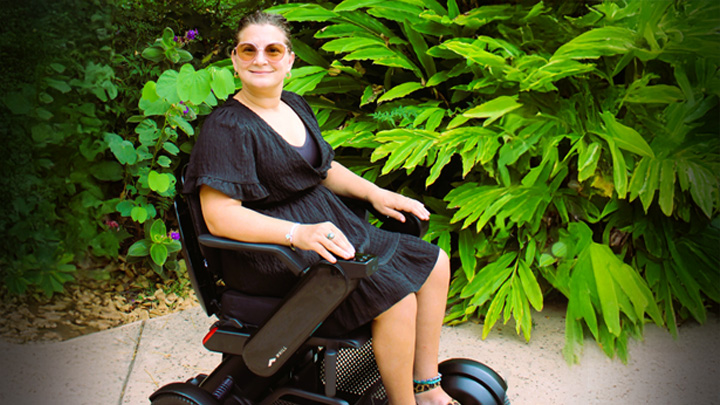‘A win for us’: Research award carries significant meaning for ARPE’s Saia

When Toni Saia was named by the Western Association for Counselor Education and Supervision (WACES) as its recipient of the 2025 Research Award, she was excited to celebrate the win.
Just don’t think it was a win for her alone.
“Having disability research done by disabled scholars be recognized in this way is a win for us,” said the associate professor in rehabilitation counseling at San Diego State University. “I hope this victory encourages other disabled scholars to continue the work that they do.”
“Us,” in this instance, means the entire disability community in higher education — a group long overlooked by the ivory tower. As a wheelchair user and longtime disability rights activist, Saia knows that disability research awards don’t often go to those with lived experience. For too long, she says, well-meaning disability researchers have seen disabled people simply as subjects to study or clients to serve.
She’s made it her professional mission to change that paradigm.
“Disabled people don’t exist to be serviced,” Saia said. “We are the leaders, we are the researchers, we are the experts. I’m passionate about building the understanding that disability is not a diagnosis but rather a culture, an identity and a community. Everything I do really operates from this understanding that disability is not a problem to be fixed or cured.”
Over the past few years, Saia has published frequently on topics ranging from exploring the societal stigma faced by wheelchair users to the experiences of disabled graduate students during the COVID-19 pandemic. In sum, her research supports rehabilitation counselors further their understanding of their role in creating an anti-abelist society.
Saia walks the walk, too. She proudly notes that for nearly every publication on her CV, at least one other disabled scholar was involved in the work.
She also credits her long history of service for helping to bring attention to her research. Saia has worked with WACES — a regional chapter of the Association for Counselor Education and Supervision covering seven western states and Pacific Rim countries — to build more accessible conferences so that disabled people could more easily participate.
“I think it’s important for people to understand that you can do meaningful service that leads to publications that directly contribute to an anti-ableist world for disabled people,” she said.
“I think it’s really important for people to see disabled people in leadership roles,” Saia added. “That’s something that I like to convey in my classrooms. We need to shift our understanding of the value disabled people bring.”

